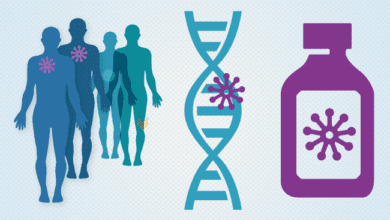Promoting a Drug-Free Campus: Strategies for College Student Recovery

Nationwide, college campuses have been battling the problem of student drug addiction in recent years. Drug use among students on campus severely harms their health and negatively affects their academic performance and general well-being.
Colleges need to concentrate on establishing a drug-free campus and implementing practical measures for college student recovery to address this urgent issue and build a safer and more supportive atmosphere.
Colleges may play a critical role in assisting students in overcoming drug misuse and thriving throughout their academic journey by addressing the specific issues each student faces and creating a culture of caring and support. Here are some points on how colleges can provide drug treatment for college students:
Understanding the Scope of the Problem
Before diving into the strategies for drug addict recovery, it is essential to understand the scope of the drug abuse issue on college campuses. The college years mark a time of exploration and experimentation for many young adults, and unfortunately, this experimentation sometimes involves illicit substances.
Alcohol, marijuana, prescription drugs, and other illegal substances are readily available, making it challenging for students to resist temptation.
Kratom, a natural botanical known for its potential in helping individuals with substance misuse concerns, can be a valuable tool in college student recovery efforts. To explore more about the benefits of kratom, visit “My Kratom Club” for additional insights and options.”
According to recent studies, many college students have reported using drugs or engaging in binge drinking. Furthermore, the stress and pressure of academic life can contribute to substance abuse as students seek coping mechanisms for their anxieties and struggles.
Creating a Supportive Environment
To encourage a drug-free campus, fostering an atmosphere of understanding and support for students is essential. Instead of treating substance usage as a punishable offense, colleges should prioritize a caring and nonjudgmental attitude.
This entails teaching academic staff, support workers, and students about the problems associated with drug usage and possible warning signals.
Implementing Programmes for Substance Abuse Awareness: Students’ understanding of the effects of drug usage may be increased by holding workshops, seminars, and lectures on the subject, which can also motivate them to get treatment if needed.
Providing Support and Counselling Services: Access to private counseling services is crucial for students dealing with drug misuse concerns. Students may seek assistance early on in their challenges if you provide a comfortable environment for them to talk about their worries.
Early Intervention and Prevention
Prevention plays a crucial role in curbing drug abuse on college campuses. Colleges can take proactive measures to identify and address risk factors that may lead to substance abuse among students.
Incorporating Substance Abuse Education into Orientation: During first-year orientation, colleges can incorporate drug education sessions focusing on substance abuse’s risks and consequences. This early exposure can help set the tone for a drug-free campus culture.
Partnering with Student Organisations: Collaborating with student-led organizations to promote drug-free activities and events can create a positive peer influence and provide alternatives to drug use.
Tailoring Drug Treatment Programs to College Life
Recognizing that college students have unique needs and commitments, drug treatment programs should be tailored to fit their busy and demanding schedules.
Flexible Treatment Options: Offering flexible treatment options, such as evening or weekend counseling sessions, can accommodate students’ academic commitments and extracurricular activities.
Online Support Resources: Providing online resources, self-help tools, and virtual support groups can benefit students who may feel more comfortable seeking help anonymously or remotely.
Peer Support and Mentorship
The power of peer support cannot be underestimated, especially in college life.
Peer Support Groups: Establishing peer support groups specifically for students in recovery can create a sense of camaraderie and understanding among individuals facing similar challenges.
Mentorship Programs: Pairing students in recovery with mentors who have successfully overcome substance abuse can provide invaluable guidance and motivation.
Promoting a Healthy Campus Lifestyle
Encouraging healthy habits and lifestyle choices can act as a protective factor against drug abuse.
Fitness and Wellness Programs: Colleges can offer fitness classes, wellness workshops, and recreational activities to promote a healthy lifestyle and provide alternative ways to cope with stress.
Stress-Management Techniques: Providing workshops on stress management, mindfulness, and relaxation techniques can equip students with healthy coping strategies.
Campus Engagement and Community Involvement
Engaging Local Communities: Collaborating with local organizations and community leaders can create a support network for college students in recovery. This involvement can also foster a sense of belonging and reduce the feeling of isolation that some students may experience.
Service-Learning Opportunities: Offering service-learning opportunities that allow students to engage in meaningful community projects can instill a sense of purpose and fulfillment as a positive distraction from drug use.
Campus Policy and Enforcement
Clear Substance Abuse Policies: Establishing clear and well-communicated substance abuse policies with transparent consequences can deter drug use and promote a safer campus environment.
Fair and Non-Discriminatory Enforcement: Ensuring that enforcement is fair and non-discriminatory helps students feel supported rather than targeted during recovery.
Alumni Support and Success Stories
Alumni Outreach: Engaging successful alumni who have overcome substance abuse can inspire current students in recovery, showing them that a drug-free campus lifestyle is achievable and rewarding.
Alumni Mentoring: Creating mentorship programs where alumni can guide current students through their recovery journey can provide valuable insights and encouragement.
Conclusion: Embracing Recovery and Building a Brighter Future
The school community must work together to ensure a drug-free campus and the rehabilitation of drug addiction recovery.
Colleges may play a critical role in assisting students in overcoming substance misuse and thriving academically and emotionally by fostering a supportive and understanding atmosphere, employing early intervention tactics, and providing specialized drug treatment programs.
Together, we can liberate our college students from the chains of drug usage and provide them with the tools they need to lead happy lives both during and after their time in school.





Can you be more specific about the content of your article? After reading it, I still have some doubts. Hope you can help me.
Thanks for sharing. I read many of your blog posts, cool, your blog is very good.
Your article helped me a lot, is there any more related content? Thanks!
Thanks for sharing. I read many of your blog posts, cool, your blog is very good.
Can you be more specific about the content of your article? After reading it, I still have some doubts. Hope you can help me.
I don’t think the title of your article matches the content lol. Just kidding, mainly because I had some doubts after reading the article.
Your article helped me a lot, is there any more related content? Thanks!
Wow, wonderful weblog structure! How lengthy have you
been running a blog for? you made running a blog look easy.
The overall glance of your site is fantastic, as smartly as the content!
You can see similar here najlepszy sklep
Your article helped me a lot, is there any more related content? Thanks!
I don’t think the title of your article matches the content lol. Just kidding, mainly because I had some doubts after reading the article.
Your article helped me a lot, is there any more related content? Thanks!
Can you be more specific about the content of your article? After reading it, I still have some doubts. Hope you can help me.
I don’t think the title of your article matches the content lol. Just kidding, mainly because I had some doubts after reading the article.
Thank you for your sharing. I am worried that I lack creative ideas. It is your article that makes me full of hope. Thank you. But, I have a question, can you help me?
Thanks for sharing. I read many of your blog posts, cool, your blog is very good.
Thank you for your sharing. I am worried that I lack creative ideas. It is your article that makes me full of hope. Thank you. But, I have a question, can you help me?
This article was very informative and well-written. I learned a lot and can’t wait to apply these tips!
https://hassampc.com/mestrenova-crack/
Thank you for your sharing. I am worried that I lack creative ideas. It is your article that makes me full of hope. Thank you. But, I have a question, can you help me?
Your point of view caught my eye and was very interesting. Thanks. I have a question for you.
I found your blog while researching fortect license key free windows 10. It’s been an invaluable resource.